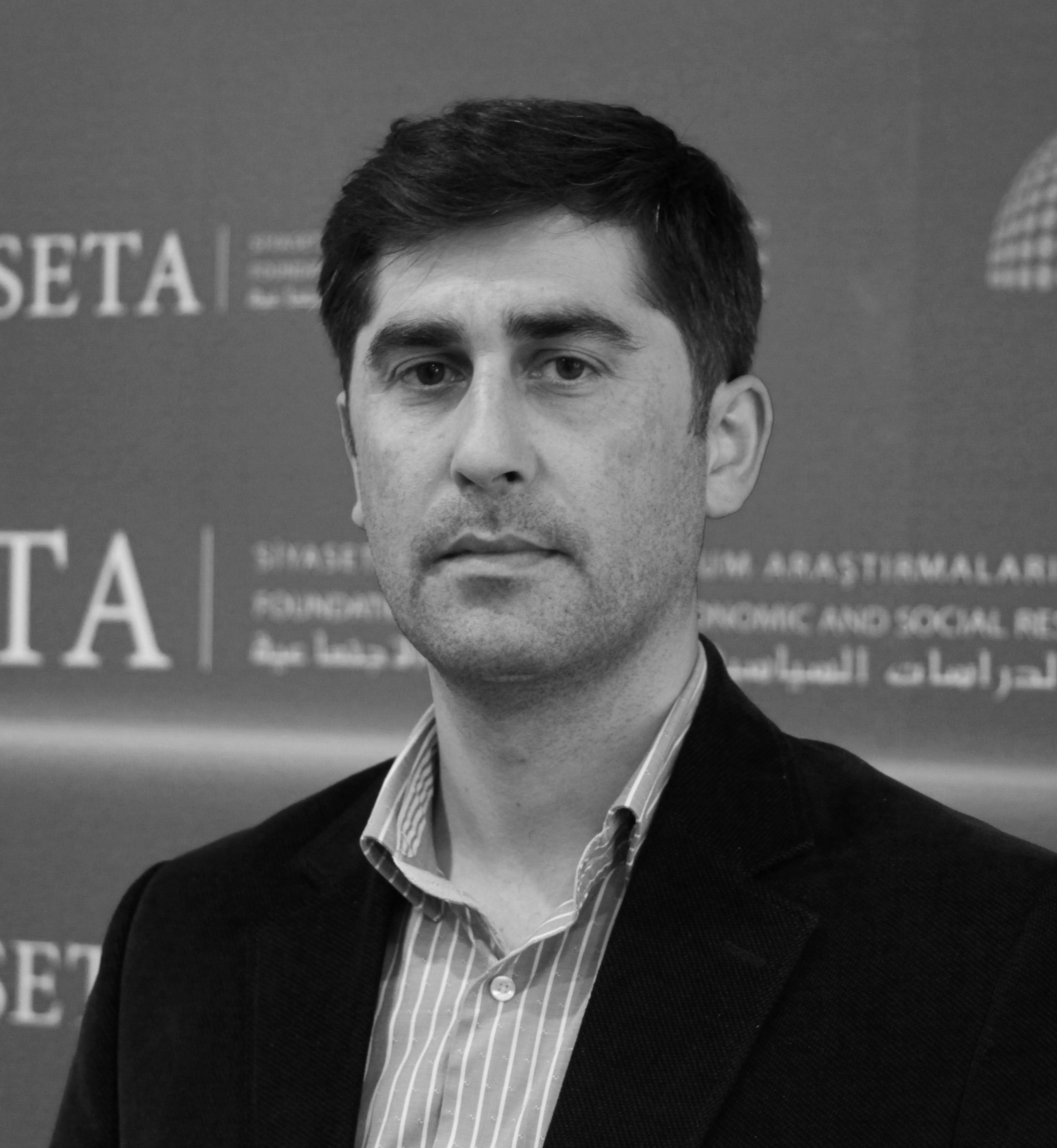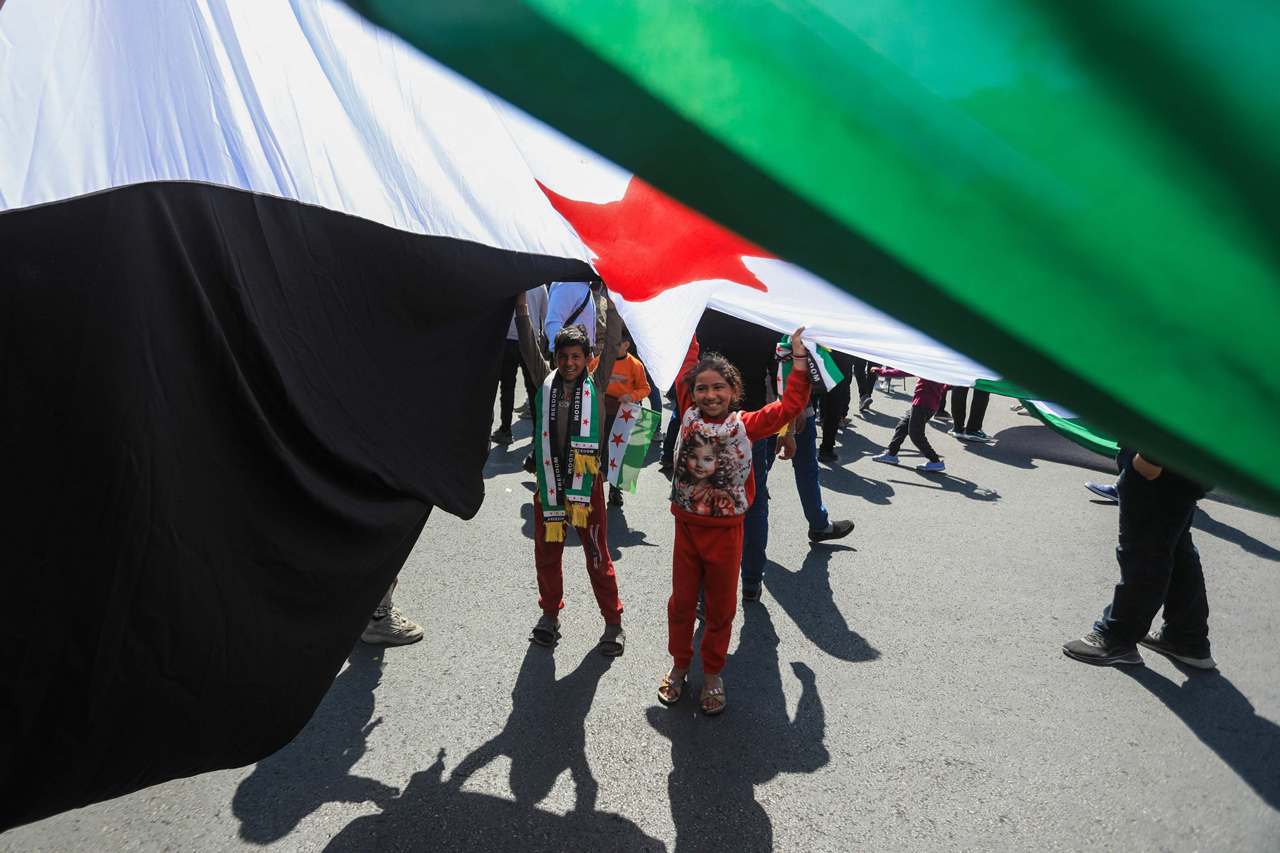Following the fall of the Assad regime, Israel began to pursue a military and politically oriented strategy aimed at undermining the political transition in Syria. The first step of this strategy manifested itself in Israel’s changing the status quo in the Golan Heights. Having violated Syria’s territorial integrity by further expanding its occupation of the occupied territory, Israel systematically intensified its airstrikes to weaken the military capacity of the new Syrian administration. As part of these attacks, the regime's ammunition depots were destroyed, and old defense systems and aircraft at military airports were targeted.
As of Dec. 8, 2024, the Israel Defense Forces (IDF) carried out more than 600 airstrikes across Syria in the 10 days after Assad’s ouster. While these attacks covered almost all military bases and outposts, the IDF also occupied the entire buffer zone established by the 1974 disengagement agreement. This step amounted to a de facto abrogation of the agreement, with Israeli troops advancing up to 12 kilometers deep into Syrian territory, laying minefields, building new transportation lines and displacing civilians.
Druze in crosshairs
Israel’s military intervention not only targeted infrastructure. It also sought to mobilize ethnic and religious groups within Syria that might oppose the new government. Minorities, especially in the southeast, were encouraged by Israel to rise against Damascus, possibly supported by arms and intelligence. Recent statements by the Israeli prime minister, in particular his demand for the clearance of the new government troops from Quneitra, Daraa and Suwayda and his assertion that any threat to the Druze community “will not be tolerated,” were a clear indication of this strategic orientation.
In early March, Israel threatened military intervention to protect Druze armed elements after a clash in the Jaramana area south of Damascus. This followed an armed attack by a Druze group of former regime militias, the Shabiha, on soldiers of the new administration. Israel’s response once again demonstrated how ethnic cards are instrumentalized in conflict situations.
The second pillar of this new Israeli policy was the arming of Druze groups and directing them toward a military organization. As a result of this effort, a new Druze militia group called the Suwayda Military Council (SMC) emerged. It established military defense lines against the new Damascus regime and began to operate as an indirect extension of Israel.
Although Israel claims in its public discourse that it is targeting Iranian-linked groups and radical elements in Syria, Tel Aviv’s main objective is to ensure that Syria remains a weak state and to make it impossible for the new government in Damascus to establish territorial integrity and sovereignty through the establishment of autonomous regions on ethno-sectarian grounds.
Main opponent: Türkiye
Another dimension of this strategic effort is directed against Türkiye. Israel’s main intention is to prevent a possible military and defense agreement between Türkiye and the new Syrian government and to limit Türkiye’s military presence in Syria. Following the collapse of the Assad regime, Israel has developed rhetoric directly targeting Türkiye. According to the Jerusalem Post, in January, an advisory committee to the Israeli government warned of the need to prepare for the possibility of direct confrontation with Türkiye.
Ankara and Damascus have been negotiating a defense agreement since December. According to this agreement, Türkiye will provide air cover and military support to the new Syrian government, which is still in the process of reconstruction. In this context, Türkiye has made large-scale logistical deliveries to the Menagh Military Air Base south of Azaz. Preparations are also underway to establish forward bases for the Turkish Air Force using the T4 and Palmyra airfields in the Palmyra region. Türkiye has also reportedly sent troops and equipment to Minaq Military Airport, where it is reportedly building military infrastructure in coordination with the new Syrian administration.
In terms of targeting, Israel’s recent airstrikes have begun to include not only the new Damascus administration but also military assets, including Türkiye. In particular, the T4 air base near Palmyra and military air infrastructure in Damascus, Hama and Homs were targeted. The scientific research center in Barzeh was also hit. While the Israeli military explained that these strikes targeted “Syria’s remaining military capabilities,” it is clear that this is also an indirect challenge to Türkiye’s stabilization efforts in the region.
From an Israeli security perspective, Türkiye’s presence, especially in strategic areas such as Palmyra, is seen by Tel Aviv as a direct security threat. Türkiye, on the other hand, is pursuing a more cautious strategy by refraining from reacting directly to the Israeli attacks. President Recep Tayyip Erdoğan emphasized that Türkiye will not remain silent against “those who want to take advantage of instability in Syria.”
These developments indicate the emergence of a more open geopolitical rivalry between Türkiye and Israel than ever before. For the first time, the discursive tension over the Israeli genocidal campaign in Gaza started to be reflected in the military-political arena in Syria. Türkiye argues that Syria’s stability is critical for its national security and opposes a new civil war that could be triggered by Israeli aggression. This may lead Türkiye to restructure its position at the regional level against Israel’s aggressive military doctrine.
It seems inevitable that the growing rivalry between Türkiye and Israel over the future of Syria will be reflected on the ground. Although the likelihood of a direct confrontation is low for the time being, the rules of engagement between the two countries may be challenged if Israel’s military interventions continue. If Türkiye continues to expand its military presence through institutionalized security cooperation with the new Damascus administration, rather than keeping it limited to defense, this will turn into a strategic challenge for Israel.
In the coming period, the Syrian theater may witness not only internal power struggles but also conflicts of interest between regional powers. The nature of relations between Türkiye and Israel has become one of the most important factors that will determine the limits of this struggle.







